QuestionMy parrot, Poncho, who is an Amazonica recently suffered a broken wing. She has been x-rayed and is now with a collar and has her right wing taped. The vet said she should stay like this for three weeks. I would like to know why, after 16 years, that this might have occurred. The dr. said she was a bit thin and might have fallen in her cage and hurt her wing. I'm a bit doubtful that that was the cause. Her cage is a reasonable sized one and is inside the living room. I am feeding her a diet of seed, kaytee and fresh fruits. She has recently found a liking for fresh banana. She never liked them before the wing incident. The dr. said she could use a companion bird unless I would be her best buddy. I am considering getting her a buddy bird. What age would be best and should I wait until her wing is healed.
Thanks! Awaiting your response.
AnswerHi Barbara,
I don't have any answers for you on the immediate cause of your bird's broken wing, but I'm wondering if maybe a calcium deficiency might have contributed to it? A lack of calcium makes bones brittle and more likely to break, even without much cause. I don't know if your vet addressed any of these possibilities, but Amazons are prone to calcium deficiencies -- especially blue-fronted Amazons. (Not sure what species yours is.) You may want to ask your vet about this, and whether a calcium supplement might be appropriate. You can also feed additional foods that are high in calcium.
The diet you're feeding sounds better than some, but I'm concerned that you didn't mention any vegetables. Vegetables should form a large part of a parrot's diet, in my opinion, particularly those high in calcium and vitamin A. Dark leafy greens are especially high in calcium -- kale, collard greens, mustard greens, turnip & carrot tops etc. Fruits, generally, are not as high in nutritional value as vegetables, and this is especially true of the fruits we tend to most commonly feed our parrots -- apples, oranges, bananas.
Here's some articles on parrot nutrition:
http://www.companionparrot.com/articles/ahealthy.html
http://www3.upatsix.com/liz/articles/nutrition.html
http://www.ittybittybirdiebites.com/nutrition.html
Getting your bird to eat new foods is a different trick. For the dark leafy greens, I've found it helps to chop them finely and mix them with fruits, sprouts or cooked foods. Some birds will take them different ways, though, and you may find yours likes the whole leaves.
Now, to the next subject. If you're unable to provide her with much companionship, then it would certainly be a good idea to get her a birdy friend. Parrots are extremely social and need a friend of some variety or another! You could get her a friend now, but I would wait to introduce them until her wing is fully healed -- otherwise, the new bird might bother her tape or collar. I recommend quarantining the new bird away from the old at least 30 days, anyway, to avoid the possible transmission of disease. Birds can hide symptoms of disease for some time, so that even the seller may not be aware a bird is sick. Keep the two in seperate rooms, as far as possible, and wash your hands between caring for one and the other.
When it comes time to introduce them, use some caution -- keep them in seperate cages at first, and watch their behavior to see whether they're interested. Some birds get along swimmingly from the beginning, but others need a good long adjustment period. This may be especially true of yours if she's used to being alone.
I would choose a bird of the same or similar species, certainly another Amazon. I'd also look for a bird of the same sex -- they'll get along just as well and you won't have to worry about breeding, which is a different and much more complicated subject! Age isn't as important, although you may want to look for another fully adult bird (4-6 years or more).
Anyway, hope this helps some, and best wishes to you and her both!
- Lara
psitta@yahoo.com

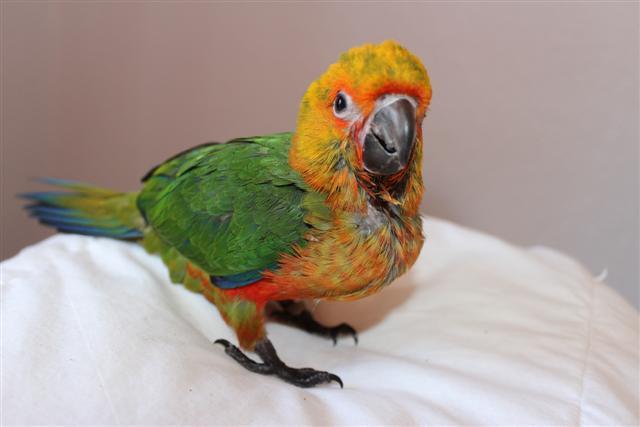 Jenday Conure Weaning?
Question
Castor the Conure
Hi
I have a 9 week o
Jenday Conure Weaning?
Question
Castor the Conure
Hi
I have a 9 week o
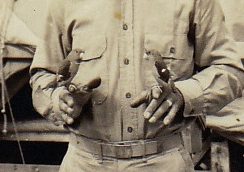 ID Birds
Question
Panama Birds
My uncle served in Panama in 1941
ID Birds
Question
Panama Birds
My uncle served in Panama in 1941
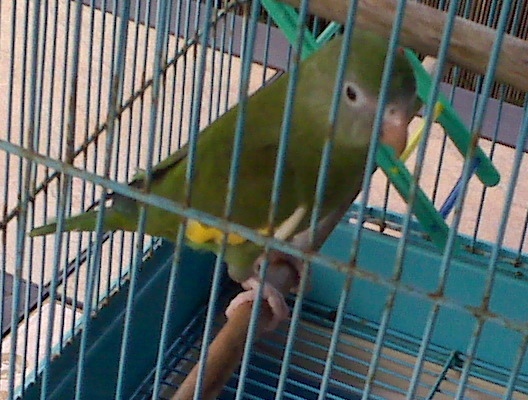 What type of parrot is this?
Question
Friendly bird
A week ago ths small parrot flew
What type of parrot is this?
Question
Friendly bird
A week ago ths small parrot flew
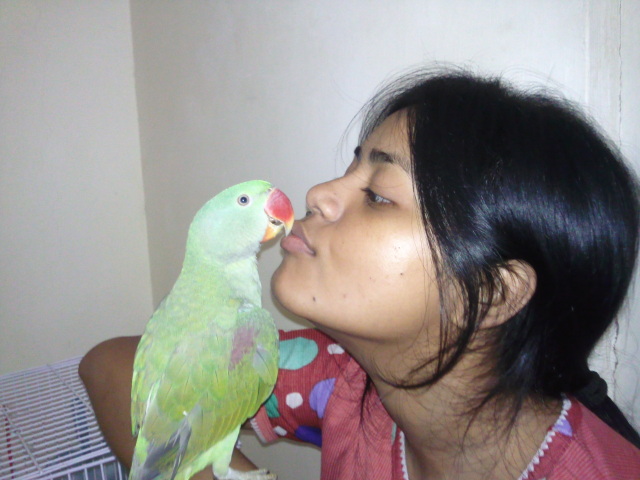 can i give my parrot chole(chana) called in hindi
Question
my little chaddi alexa
dear sir,
can give chan
can i give my parrot chole(chana) called in hindi
Question
my little chaddi alexa
dear sir,
can give chan
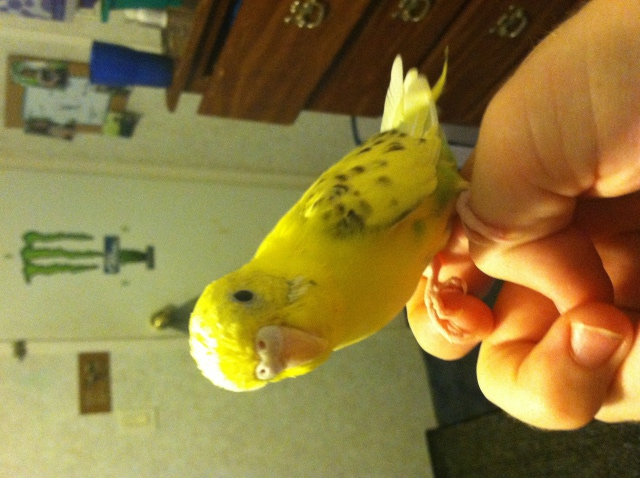 Parakeet gender
Question
Parakeet
Hi, I looked for an expert und
Parakeet gender
Question
Parakeet
Hi, I looked for an expert und